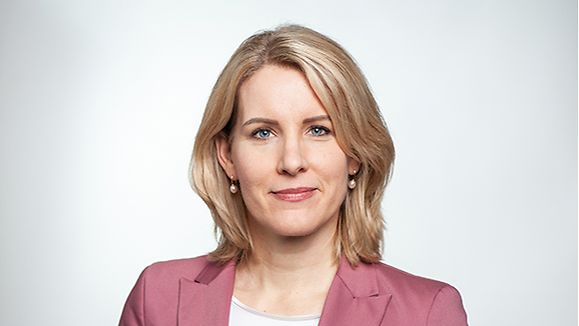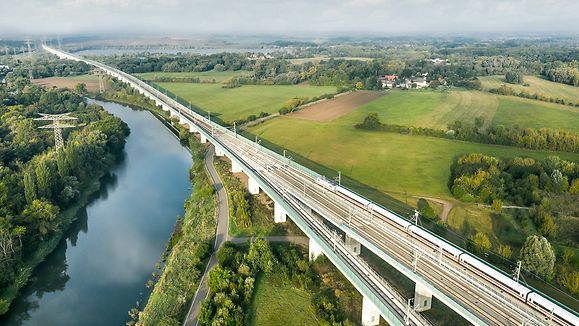Structural Change
News from the Regions in Structural Change | January 2025
Germany’s new federal states are a hotbed of innovation in areas as diverse as new battery technologies and biodegradable implants. Here we provide a brief look at recent developments and investments in the forward-looking region.
Jan 24, 2025
- Canadian Li-Cycle opens EUR 20 million recycling facility near Magdeburg
- Japanese plant manufacturer doubles production at Saxony site
- US high-tech firm invests in Pirna
- Swedish semiconductor supplier establishes limited company in Dresden
- Dresden-based company partners to develop cost-effective driver assistance system
- FEV and ProLogium launch latest generation battery
- Saxon researchers develop biodegradable implants
- Thuringia-Saxon company develops new generation of care robots
Canadian Li-Cycle opens EUR 20 million recycling facility near Magdeburg
Canadian company Li-Cycle has opened a EUR 20 million recycling facility in the town of Osterweddingen near Magdeburg. The company plans to recycle up to 30,000 tons of lithium-ion batteries annually, recovering “black mass” from old batteries. Magdeburg’s proximity to the automotive industry and battery cell production was a decisive factor in Li-Cycle’s decision to locate to the location in Saxony-Anhalt.
Japanese plant manufacturer doubles production at Saxony site
Japanese plant manufacturer Nikkiso Cryotec plans to double its production capacity at its facility in Wurzen, Saxony. Construction of a second production hall will cost in the region of EUR 15 million according to the Japanese company and is scheduled to become operational in summer of this year.
US high-tech firm invests in Pirna
US high-tech firm D.I.S. recently inaugurated its new European Research and Development Center – with office area of 1,300 sqm and connected production halls of almost 5,000 sqm – in the industrial park Copitz-Nord in Pirna, Germany. The ion beam technology specialists first launched D.I.S. Germany in 2018 and began operations from a temporary facility in Kesselsdorf. The company’s portfolio of products includes iron source, ion optics and ion diagnostics as well as complex ion irradiation and implantation equipment.
Swedish semiconductor supplier establishes limited company in Dresden
Swedish semiconductor industry supplier AlixLabs is establishing a limited company in Dresden, Saxony. The Lund University spin-off is active in leading-edge sub 5nm logic device and memory chip manufacturing for consumer electronics devices, 5G communications and AI implementations.
Dresden-based company partners to develop cost-effective driver assistance system
Dresden-based automotive supplier Joynext has developed a cost-effective assistance system with Israeli AI company Autobrains. The new solution combines AI-based perception software with control software within a compact module which makes it more cost-effective than comparable market solutions. The “Smart Camera,” set to come available worldwide this year, as recently demonstrated on a test track in Germany. Autonomous emergency braking, lane departure warning systems and intelligent speed assistance are all enabled by the new system.
FEV and ProLogium launch latest generation battery
Aachen-based company FEV recently launched the latest generation of its Large Footprint Lithium Ceramic Battery (LLCB) with partner ProLogium. The battery’s lower weight and increased energy density allow longer driving ranges and make ultra-fast charging possible. The latest generation of the solid-state battery, which the two companies presented at the Paris Motor Show last October, is the first to use an anode made entirely of a silicon composite material. According to the two companies, this allows a tenfold increase in capacity density compared to conventional graphite anodes. This allows the cell to achieve an energy density of 360 Wh/kg – exceeding lithium-ion cell capacity by a factor of 1.8. The battery can be charged from five to 60 percent in just five minutes, allowing an average distance of 300 km to be covered. Subject to the vehicle segment and intended use, the LLCB allows weight savings of up to 300 kg or a maximum range of 1,000 km. The solid electrolyte deployed is also non-flammable and increases safety against thermal runaway and prevents potential short circuit caused by electrolyte liquid leaks.
Saxon researchers develop biodegradable implants
Researchers at the Fraunhofer Institute for Manufacturing Technology and Advanced Materials (IFAM) are working on extremely strong implants that dissolve in the body. Work on developing the chemical element Molybdenum for biodegradable implants has already been ongoing for nine years. The research team sees particular benefits of using the transition metal in the area of pediatric medicine, where implants are no longer required after periods of three, six or 12 months. The Fraunhofer scientists, together with partners at Dresden University Hospital and companies including Chemnitz-based SITEC Industrietechnologie, are hopeful of launching the first implants for the heart, blood vessels and bone to hospitals by 2030.
Thuringia-Saxon company develops new generation of care robots
Tediro Healthcare Robotics, based in Thuringia and Saxony, has developed a new generation of care robots to relieve therapists and other healthcare specialists of routine tasks. The “Thery” robots allow medical and therapeutic staff to improve patient mobility without the need for actual staff presence. Patients are accompanied by the autonomous robots while they practice a number of physiotherapy exercises including self-directed gait training using forearm supports. The use of autonomous robots potentially frees up therapeutic staff to carry out hands-on therapy, physiotherapy, manual therapy and osteopathy treatments. The company recently secured funding in the seven-figure range from Beteiligungsmanagement Thüringen and Technologiegründerfonds Sachsen and other investors.

